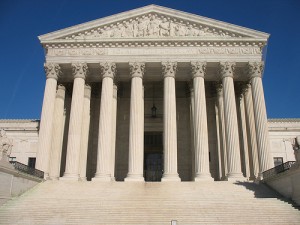A County ordinance provides that waste generated in the County can be disposed at only a single location — a publicly owned landfill:
The dumping or depositing by any person at any place other than at the designated facilities of any acceptable waste generated within the County is prohibited.
The County crafted the ordinance to further many public benefits: to conserve resources, to prevent pollution, and to protect the public health, safety, and well-being. For the public landfill, the ordinance also ensured a revenue stream.
But for a private landfill operator located just two miles from the County line, the ordinance was a real problem. The ordinance led to a significant decrease in its business.
The operator sued the County. It argued that the County ordinance violates the dormant-commerce clause and the equal-protection clause of the federal constitution. Is the operator correct?
In Sandlands C&D LLC v. County of Horry, No. 13-1134 (Dec. 3, 2013), the Fourth Circuit ruled against the operator. It upheld the district court’s grant of summary judgment for the County.
Applying the Supreme Court’s decision in United Haulers Ass’n v. Oneida-Herkimer Solid Waste Management Authority, 550 U.S. 330, 346 (2007), the court ruled that Continue reading →






